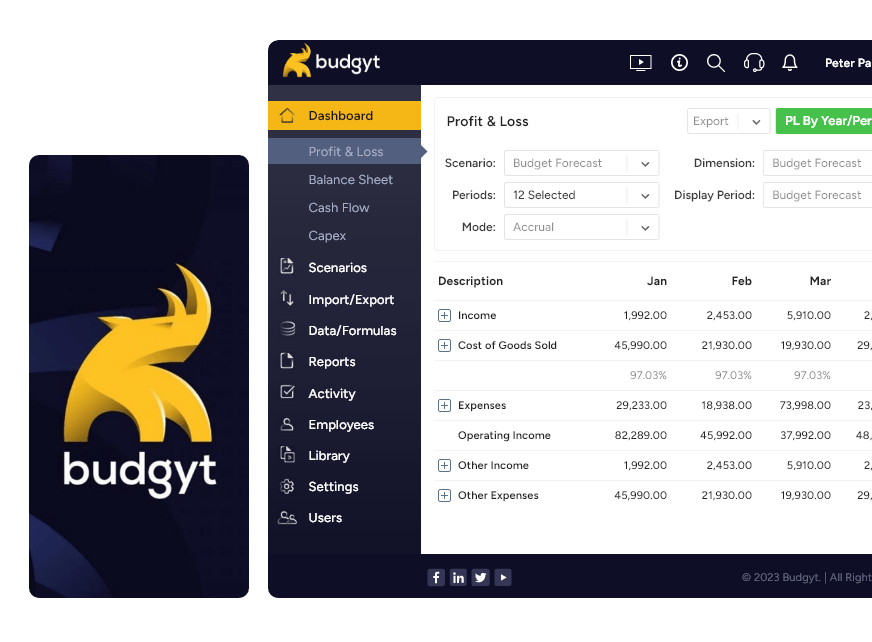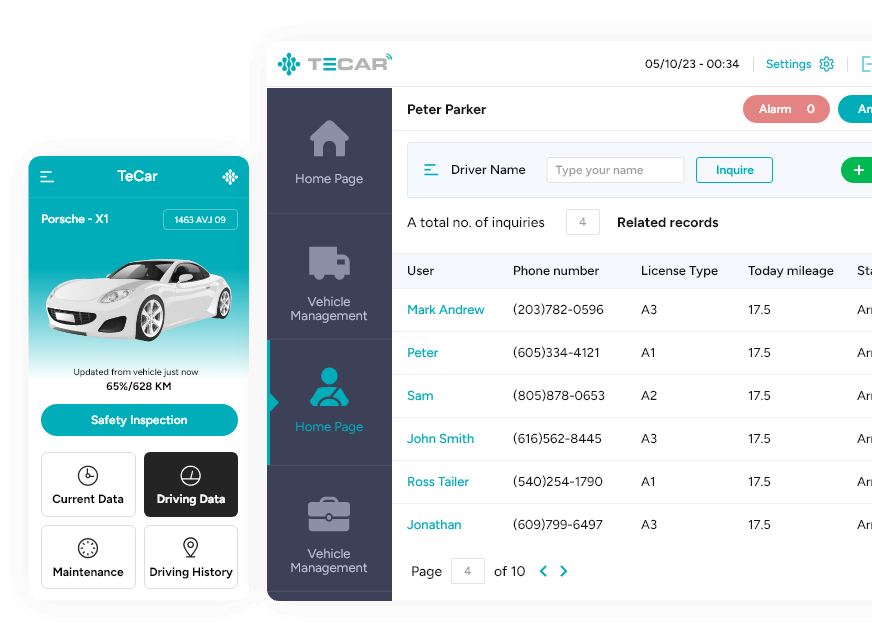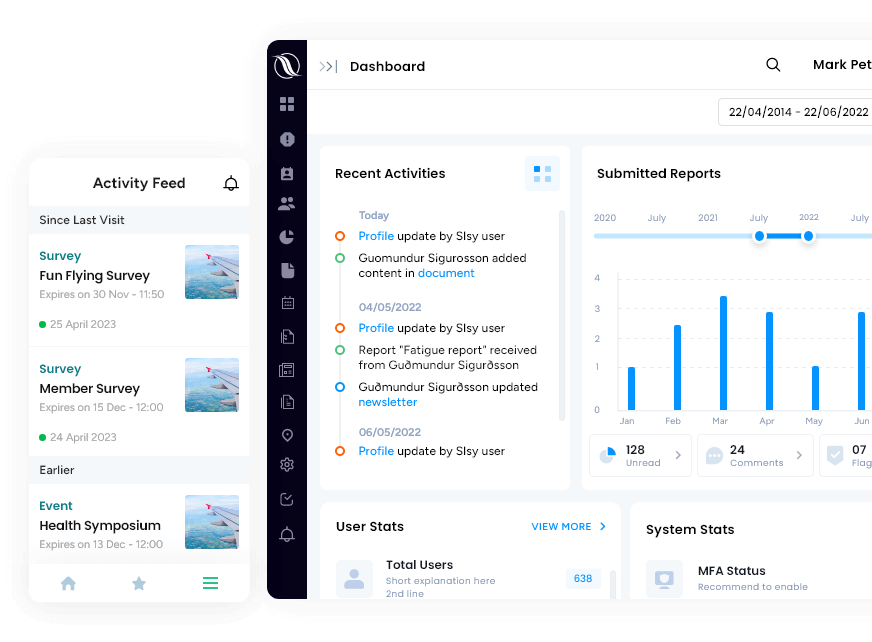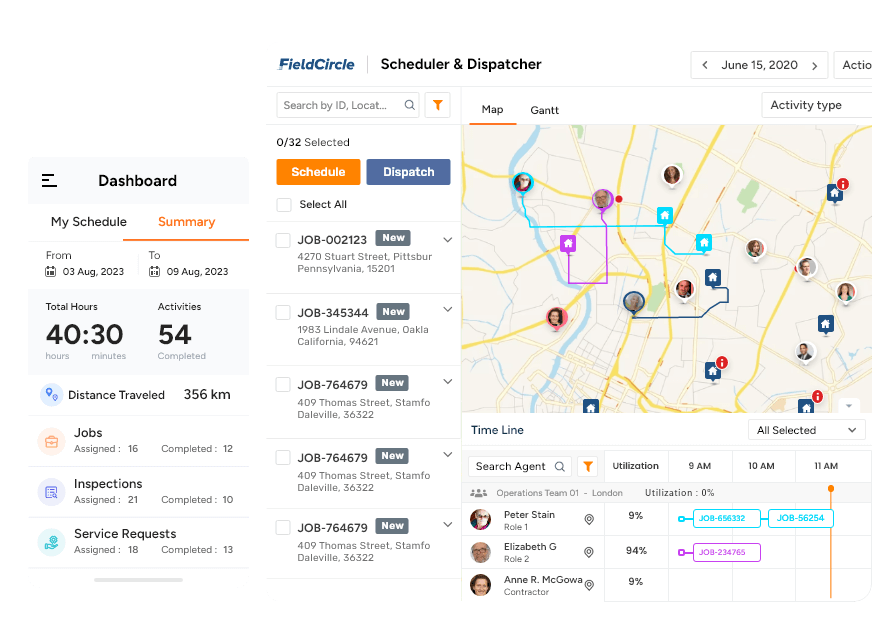Java Development Services
Finoit, with over 14 years of expertise, is a leading provider of Java application development services, delivering robust and scalable solutions across various industries. Our Java applications are built for platform independence, ensuring seamless operation across different environments. We prioritize high performance and robust security to meet the demands of enterprise-level projects. Supported by a vast community of developers, Finoit’s Java development services offer the scalability and reliability needed to drive your business forward, whether you’re in finance, healthcare, or any other industry.

Leader in Building Startups and Scaleups for 14 Years
Years of Proven Java Expertise
Java Devs Team
Saved via Java Development Services
Success Stories
Trusted by 200+ customers globally


Awards and Certifications











What Finoit’s Java Development Services Cover
Our Java software development services help you harness the power of Java programming language by
offering diversified solutions across the following service areas:
Custom Java Application Development
Finoit specializes in developing tailor-made Java-based applications designed to meet the specific needs of businesses across various industries. These applications are scalable and secure, ensuring they grow with your business while maintaining robust security protocols.
Java Web Development
Using powerful Java frameworks like Spring, Hibernate, and Struts, Finoit creates dynamic and feature-rich web applications that deliver fast and responsive user experiences. These web solutions are built to be highly interactive and can handle complex workflows with ease, enhancing business processes through robust web architecture.
Learn MoreJava Mobile App Development
For businesses seeking a presence on Android platforms, Finoit develops efficient and native mobile applications using Java. These apps are compatible across multiple devices, ensuring high performance and a seamless user experience, regardless of the platform’s complexity.
Learn MoreJava Consulting
Finoit’s Java consulting services provide expert guidance on everything from selecting the right Java technologies to implementing best practices for application development. Our consultants ensure that your business achieves optimal results with its Java projects, providing deep expertise and strategic advice.
Java Cloud Development
Finoit offers cloud-native Java application development, enabling businesses to take advantage of the scalability and flexibility of platforms like AWS, Azure, or Google Cloud. These applications are optimized for cloud environments, ensuring seamless performance while reducing infrastructure costs.
Java-based SaaS Application Development
Finoit builds Software as a Service (SaaS) applications using Java, creating scalable and multi-tenant solutions that allow businesses to offer subscription-based services. These Java-based SaaS applications are secure, customizable, and designed for efficiency in high-demand environments.
Learn MoreJava Migration & Upgradation
Finoit assists businesses in migrating legacy systems to modern Java-based architectures or upgrading existing Java applications. The goal is to improve performance, scalability, and security, ensuring that businesses can stay competitive and reduce the risks associated with outdated systems.
Enterprise Java Development
For large-scale operations, Finoit provides enterprise-level Java development. These applications are built to handle high-performance demands, integrate seamlessly with other business systems, and optimize internal workflows, enhancing operational efficiency across the organization.
Learn MoreJava IoT Solutions
Finoit also offers Java-based IoT solutions, enabling devices to communicate securely and efficiently. These solutions are ideal for businesses looking to leverage Internet of Things (IoT) technology, connecting devices and managing vast amounts of data in real-time.
Java App Development Success Stories
What Our Clients Say About Us
Unlocking value with robust product development for our customers as their go-to, dependable software development firm
Java Development
Process
Initial Consultation and Requirement Gathering
Our process starts with a thorough Initial Consultation where we gather requirements for your java project. We engage with your team to understand the specific challenges and business goals. This phase ensures all key aspects are defined early, allowing us to build a solution aligned with your needs.
Design and Architecture Planning
In the Design and Architecture Planning phase, Finoit’s architects design a scalable architecture using Java frameworks like Spring and Hibernate. This ensures high performance, security, and easy integration with your existing systems, providing a strong foundation for long-term growth.
Agile Development and Implementation
Using an Agile Development approach, we implement iterations for your java project. This allows for regular feedback and adjustments, ensuring that the final product is scalable and robust. Each iteration addresses specific features, ensuring continuous progress and adaptability to changing needs.
Quality Assurance and Testing
Our Quality Assurance and Testing phase ensures your java application is ready for deployment. We utilize automated testing and code reviews to guarantee that your Java application is secure, performs well under pressure, and meets all predefined standards.
Deployment and Continuous Integration
In the Deployment phase, we ensure smooth integration into your production environment. By using continuous integration practices, we minimize downtime and make sure the application is immediately operational, with all configurations and necessary integrations in place.
Post-Launch Support and Maintenance
Finoit provides ongoing Post-Launch Support, including regular updates, performance monitoring, and proactive maintenance. This ensures your Java application continues to run efficiently and securely, adapting to your business’s evolving needs.
Why Choose Finoit For Your
Java Development?
Experience
With over 14+ years of experience, Finoit has delivered 300+ Java development projects across various industries, demonstrating our ability to tackle complex challenges with proven results. Our experience ensures that we not only meet but exceed the expectations of our enterprise clients by providing high-performance and scalable solutions tailored to their needs.
- 250+ Certified &
Experienced Developers - Flexible Plans To Meet
Your Needs
In Budget, On-time
Finoit is committed to delivering java projects on budget and on time. Our use of agile methodologies, coupled with efficient project management, allows us to maintain strict control over costs and timelines. This approach has enabled us to achieve a 20% reduction in delivery times while staying within budget, ensuring our clients receive high-quality java software solutions without unexpected expenses.
Proven and Credible Team
Our team at Finoit comprises experienced professionals who have successfully handled some of the toughest Java projects. With a track record of delivering high-performance and secure Java applications, our proven and credible team is equipped to address the unique challenges of each project, ensuring that our clients receive scalable and robust solutions.

Product mindset and Quality Focus
At Finoit, we approach each project with a product mindset, focusing on the end product’s success by emphasizing user experience, market fit, and business value. We adhere to ISO 9001 standards and employ rigorous quality assurance processes, from automated testing to performance benchmarking, to ensure every Java application is robust, secure, and scalable.
Scale and Speed
Finoit’s agile practices and cutting-edge technology stacks enable us to handle java projects of any scale with speed and efficiency. By leveraging our resources strategically, we expedite development cycles, reducing time-to-market and enabling our clients to stay ahead in today’s fast-paced environment.
Java Development Costing at Finoit
At Finoit, Java development costs are tailored to meet the specific needs of each project, with a transparent pricing approach that factors in software complexity, framework choices, and feature requirements. Whether it’s custom software development or Java web and mobile applications, we focus on providing cost-efficient solutions, achieving 15-30% savings through agile methodologies and optimized resource allocation. Our flexible pricing models—including fixed-cost, time-and-material, and milestone-based options—ensure that over 90% of our clients receive tailored solutions that maximize their ROI. In fact, our clients report a 35-40% increase in ROI due to the market-ready, scalable Java applications we deliver, positioning their businesses for long-term growth and success.
Costs of Custom Java Software Development
Our pricing for custom Java solutions factors in the intricacy of your project, including software complexity, framework choices, and features demanded. With this strategy, we deliver high-performing, secure, and scalable Java applications, as our ability to deliver optimal pricing plans translates into cost efficiency for our clients.
Cost for Java Web and Mobile Application Development
Since Java development requirements for web and mobile app development vary, Finoit’s experienced consultants scrupulously assess project scope, technology stack requirements, and business goals to provide accurate and competitive quotes. We emphasize our commitment to transparency and optimal resource allocation to estimate project costs.
Finoit’s Flexible and Client-centric Pricing Models
Since we have multiple engagement options to offer, our clients can choose the one that best suits their financial and operational needs. The flexibility that this approach provides aligns with different project requirements and budgets, ensuring clients get the best value for their Java development investments.
Maximizing ROI
While minimizing your spending through our costing framework, we also remain steadfastly committed to improving your project return on investment (ROI). To make the investment of our clients cost-effective in the long run, we deliver cutting-edge, market-ready solutions that not only meet immediate project needs but also position enterprises for future growth.
Build Great Java Team
With Us with Flexible Engagement Models
Outsource Java development to our experts with ease with these engagement options through which you transfer the key development process to experts adept at tackling all Java development intricacies.
Dedicated Java Development Teams
Our Dedicated Java Development Teams model provides you with a focused team of expert Java developers aligned with your business goals. This model is ideal for long-term projects where deep integration with your in-house team is essential. Clients using this model have experienced 30% faster time-to-market due to our seamless collaboration and focused effort.
Java Team Augmentation
The Java Team Augmentation model allows you to supplement your existing team with our skilled java developers to meet specific project needs. This flexible approach is perfect for quickly scaling up or filling temporary skill gaps. With 90% client satisfaction, this model ensures your projects are delivered on time and within budget.
Full Java Development Outsourcing
With Full Development Outsourcing, Finoit takes full responsibility for the Java development lifecycle, allowing you to focus on your core business. This model is especially beneficial for clients looking to reduce costs and improve efficiency, delivering up to 40% cost savings through our agile processes.
Fixed Cost Fixed Time
The Fixed Cost Fixed Time model is suited for Java development projects with a well-defined scope and timeline. It ensures on-budget and on-time delivery, making it ideal for small to medium-sized Java projects. Finoit has successfully completed 100+ Java projects under this model, guaranteeing zero scope creep.
Time & Material
Our Time & Material model is designed for Java development projects that require flexibility. It allows for adjustments in project requirements as the market or business needs evolve. This approach has been crucial for delivering dynamic Java projects with 20% fewer delays.
Milestone Billing
The Milestone Billing model breaks down extensive Java development projects into measurable phases with payments tied to each milestone. This method reduces risks and ensures clear progress, resulting in improved client satisfaction and timely delivery.
Industries We Serve
Our industry-wide recognition makes businesses forge partnerships with us. Hire Java programmers from Finoit to develop custom Java applications tailored to your needs. With our extensive Java development experience, we have successfully served enterprises from these industries as we continue to extend our reach to diverse sectors.
Healthcare
Finoit’s Java development services are instrumental in the Healthcare industry, where we build secure and efficient applications like Hospital Information Systems (HIS), Telemedicine platforms, and Clinical Decision Support Systems. Our solutions ensure secure management of patient data and streamlined medical workflows, enabling healthcare providers to deliver better patient care.
Automotive and Transportation
In the Automotive and Transportation sector, we harness Java to develop In-Vehicle Infotainment systems, fleet management software, and intelligent traffic management solutions. Our expertise enables clients to create connected car applications and telematics systems that improve operational efficiency and enhance the user experience..
Education
Finoit supports the Education industry by developing advanced applications such as Online Examination Systems, Library Management Systems, and collaborative tools with real-time features. These Java-based solutions are designed for scalability and performance, catering to the growing demands of modern educational institutions.
Banking and Finance
In Banking and Finance, Finoit builds core banking systems, electronic trading platforms, and risk management solutions using Java. Our applications enhance security, compliance, and efficiency, making them essential tools for financial institutions that prioritize data integrity and operational reliability.
Retail
Finoit’s Java solutions in the Retail sector empower businesses with intelligent applications that elevate business processes and customer experiences. From inventory management to e-commerce platforms, our solutions leverage Java’s versatility to meet the evolving needs of rapidly growing retail businesses.
Telecommunications
Our work in Telecommunications involves creating VoIP and messaging applications, network management tools, and billing systems. By utilizing Java’s multithreading and secure networking capabilities, we develop applications that ensure seamless interoperability and support the reliable functioning of complex telecom infrastructures.
Travel and Tourism
Finoit serves the Travel and Tourism industry by developing booking engines, navigation apps, and virtual tour platforms. These Java-based solutions are designed to optimize client operations, enhance customer engagement, and expand global reach, making travel experiences more accessible and enjoyable.
Media and Entertainment
In the Media and Entertainment sector, we leverage Java to develop scalable applications that handle large data volumes, such as OTT platforms and content management systems. Our solutions prioritize processing speed and user experience, enabling media companies to deliver seamless and engaging content to their audiences.
Non-Profit
Finoit provides Java-based solutions for Non-Profit organizations, including applications for fundraising, volunteer management, and donor engagement. Our technology helps non-profits operate more efficiently, enabling them to achieve greater impact in advancing their missions and serving their communities.
Utility and Energy
In the Utility and Energy industry, Finoit’s Java applications, such as grid management systems and predictive maintenance tools, support the reliable operation of critical infrastructure. Our solutions help businesses optimize energy distribution and ensure sustainability, contributing to a more resilient energy sector.
Java Technology Stack We Hold Expertise In
Java offers an array of evolving technological features which our software developers meticulously employ. Our toolkit for implementing Java comprise, but are not limited to, the following set of tools:
Get a Tailored Quote for Your Java Project
Trusted Java Application Development CompanyWhat Happens When You Book a Call?
- 01 Our CTO Receives Your Requirements When You Reach Out, Our Co-Founder And CTO, Mukesh, Who Has 18 Years of Experience In Software Development And Building Successful Startups, Receives Your Requirements.
- 02 Discuss Your Needs You’ll Get A Call Back From Mukesh And Team, Who Will Learn About Your Business And Discuss Your Needs.
- 03 Get A Tailored Proposal We’ll Send You A Custom Proposal That Meets Your Needs, Budget, And Timeline.
Blogs
Our featured blogs sharing insights on field force automation, applicability and latest trends in industries
+Show blog




































